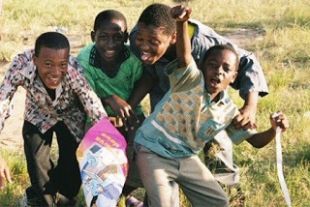 Recently, I’ve had the opportunity to work with a group of fifth graders. Over time, we’ve developed quite a relationship where they feel comfortable opening up to me about things happening in their lives. Often, we adults do not ask children what situations they face. Maybe it’s because we tend to be in denial or maybe we don’t want to tackle those problems head on or maybe we just get so busy that we don’t ask children these real life questions. Nevertheless, children are being pressured into deviant behavior whether we want to admit it or prioritize discussing it with them.
Recently, I’ve had the opportunity to work with a group of fifth graders. Over time, we’ve developed quite a relationship where they feel comfortable opening up to me about things happening in their lives. Often, we adults do not ask children what situations they face. Maybe it’s because we tend to be in denial or maybe we don’t want to tackle those problems head on or maybe we just get so busy that we don’t ask children these real life questions. Nevertheless, children are being pressured into deviant behavior whether we want to admit it or prioritize discussing it with them.
As the children I spoke to opened up, they told informed me that their peers were encouraging them to participate in illegal activities, and that sometimes they were equally as guilty for pressuring one of their friends or siblings to do the wrong thing. For them, it is part of what they do in childhood. You go to the store on the corner before or after school and stuff packs of gum and Now & Laters and Hot Cheetos in your pockets. When questioned by store staff, you blatantly lie so that now it just feels comfortable to be dishonest. “Sometimes you do tell the truth,” said one child. He then recalled a time he was accused of theft. “The store cashier told me to be honest or else he would call the cops. So I told him, ‘Yes, I did steal, but it’s because I’m poor and I cannot afford it.'”
As I listened intently to these real life accounts, it brought me back to my childhood. I never had to shoplift for clothes at Old Navy in the local mini-mall in my county, but I absolutely remember people in my peer group doing it. In an attempt to keep up with the changing trends and their parents lack of income, they risked getting arrested for a “best dressed” reputation. I also remember instances where people would steal from the 711 and get into verbal spats with the employees. More importantly, I remember where some of my peers ended up, and as my fifth graders share their lives with me, I wonder just how can I combat the neighborhood’s influence on their decision-making?
In schools across America, we teach character building through scenarios that happen on the school grounds such as playing fair on the playground, learning how to share materials during centers, or not pushing in line. But I’m afraid we miss the perfect opportunity to bring up decisions our children face outside of school walls.
How are we preparing them to face their older brother or cousin who pressures them to smoke weed? What about drinking a parent’s alcoholic beverage that was left unopened in the refrigerator? These are also example of negative choices that the children I’m getting to know brought up. Our children are constantly asked or pressured to make poor life choices on their block. These choices can serve as gateways into even more negative behavior that could happen later in life.
Furthermore, in middle school I was involved in S.N.A.A.P (Students Notifying Adolescents About Prevention), and in elementary, middle and high school I participated in Youth to Youth. Both of these programs helped me to combat the neighborhood and media’s influence on my decision-making.
Today, while chatting with the fifth graders, I was able to spew facts I learned about cigarette smoke and underage drinking at a young age. They had no idea smoking cigarettes fills lungs with tar or that alcohol is a poison that can make them extremely sick, and that when adult gives them alcohol, it’s a crime. Kids should receive all this information early on–in age appropriate doses–but definitely not sugar-coated. On the streets, it’s not sugar-coated, and they certainly are not skipped over peer pressure because of their age. It’s time we have this conversations or else deal with the consequences of having their peers or media lead them down the wrong path.
My questions to you:
- How do we get this information back into schools?
- Is this even being taught in health class at the late elementary level?
- What role do schools play in helping children make the right decisions, not just in school, but in life?
- How can schools address the type of pressure our kids face when they leave the grounds? What has your school done to bring up these types of issues?
I’d love to hear your thoughts.